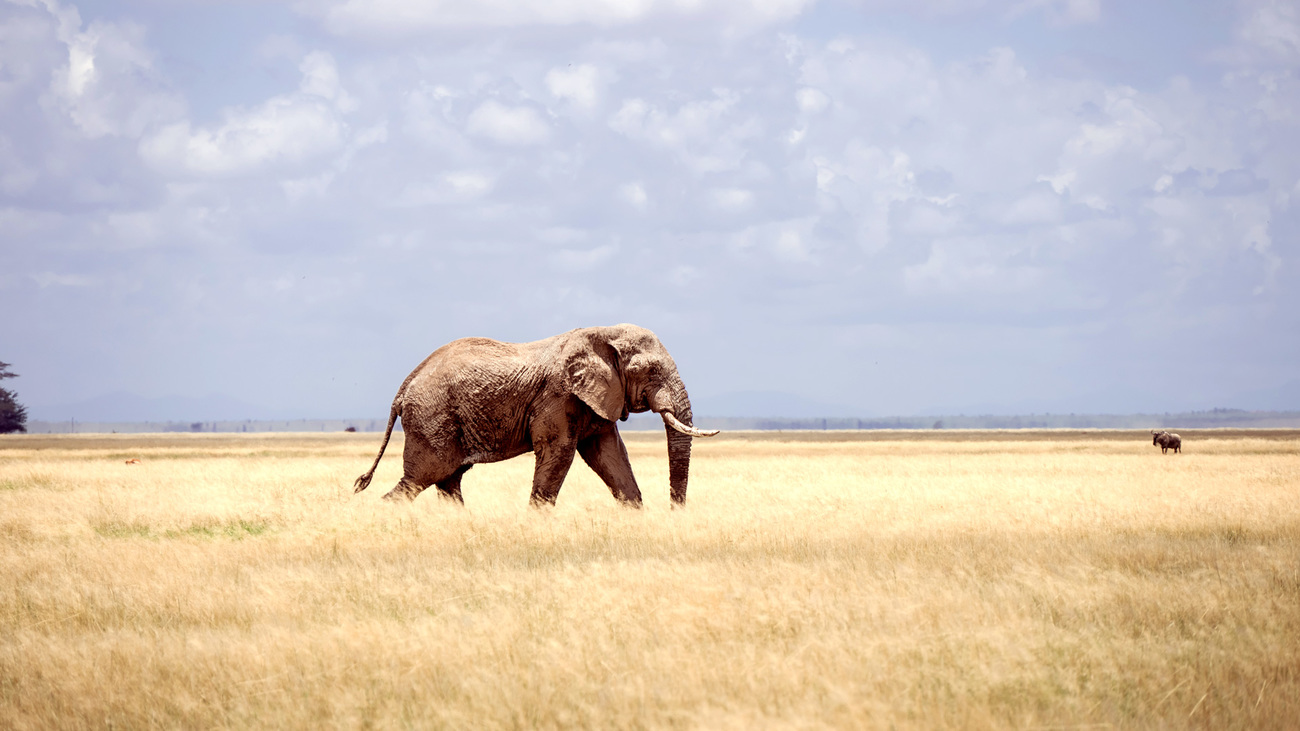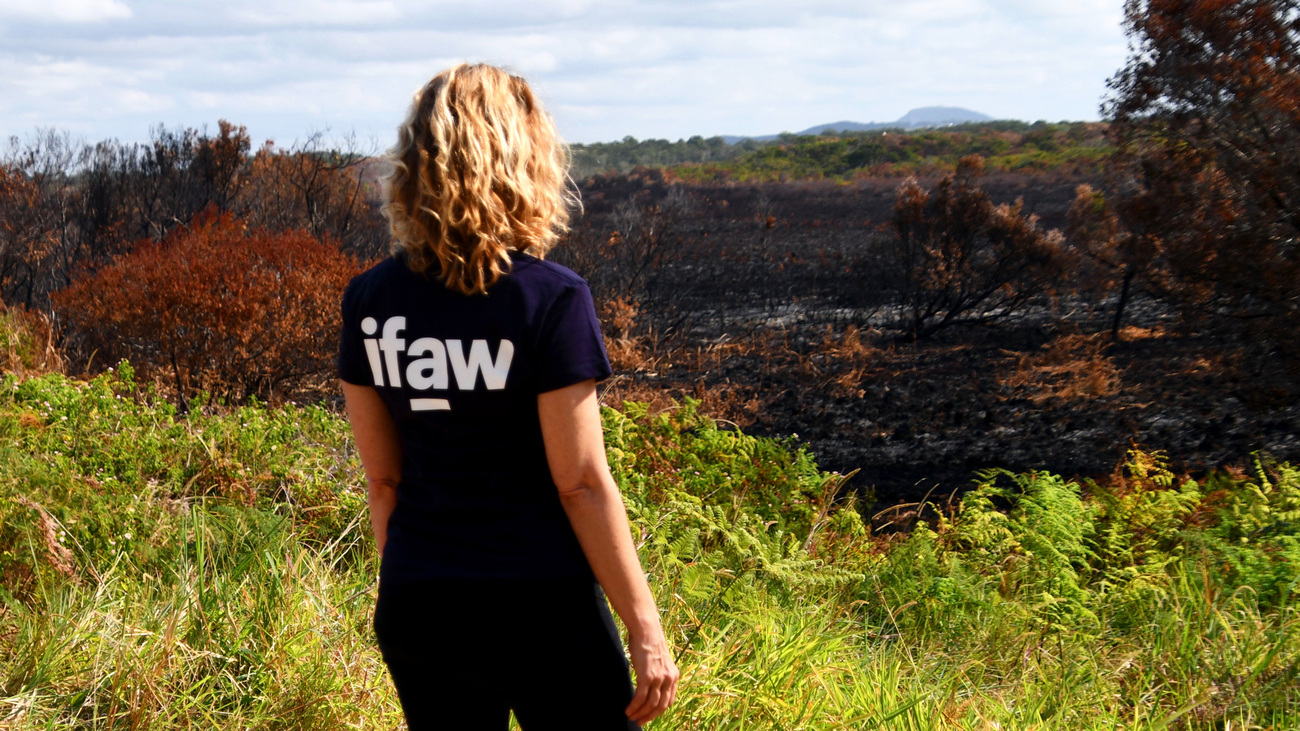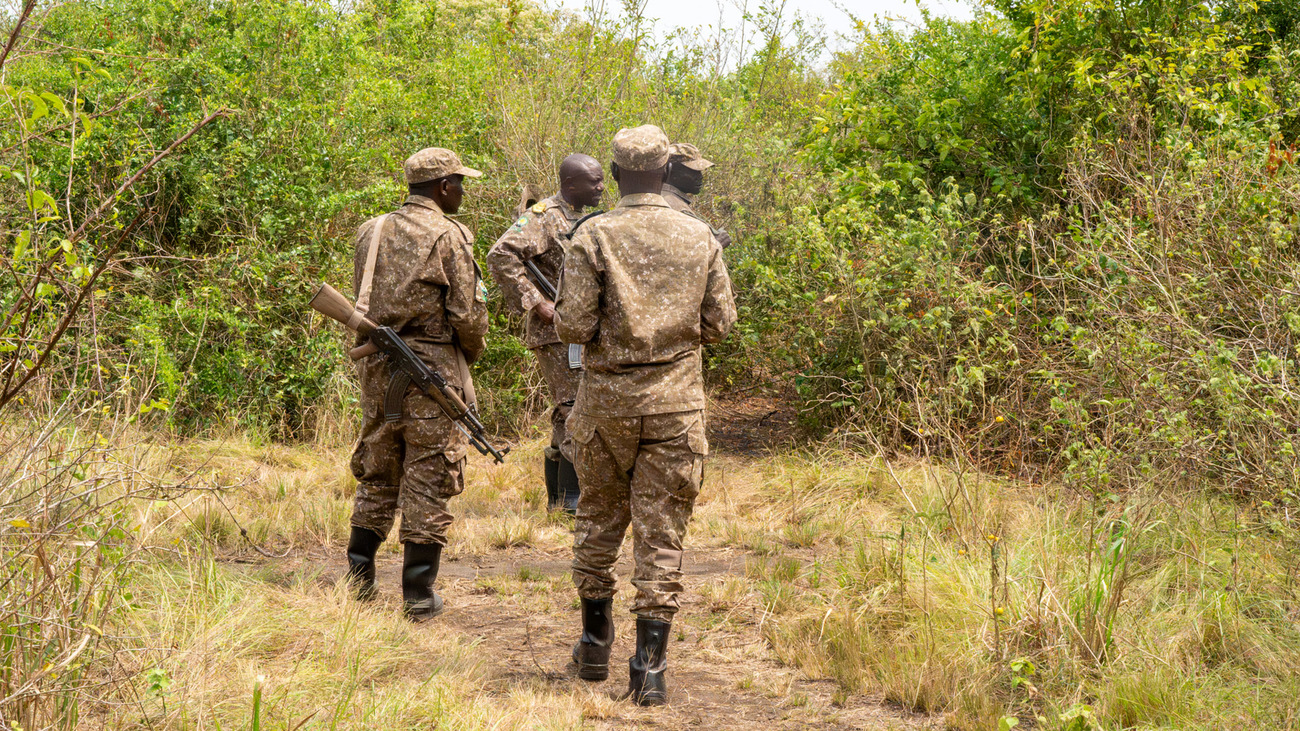Updates
IFAW rushes urgent support for vulnerable puffins after devastating floods in France
Read moreWhat is the IUCN World Conservation Congress—and why is IFAW going?
Every few years, people from around the world come together to make important decisions about the future of nature. Scientists, Indigenous leaders, conservation experts, and government representatives gather to share ideas, build alliances, and vote on actions that will shape the planet’s future.
Organised by the International Union for Conservation of Nature (IUCN), this event, the World Conservation Congress, is the only forum where governments and civil society organisations share equal voting rights on decisions that help determine the direction of conservation.

This October, IFAW will be present in Abu Dhabi alongside leaders from around the world to speak up for animals and urge action that protects wildlife, restores nature, and recognises the intrinsic links between animals, people, and the planet.
There are essentially two parts to the Congress. First, IUCN members like IFAW showcase important conservation work being done around the planet. At this Congress, IFAW is involved in several events, including on the role of wild animals in climate mitigation, supporting rangers, protecting animals in disasters, addressing wildlife crime, and conserving Asian elephants and whale sharks. By highlighting best practices from our work around the world we hope to inspire friends and colleagues in the conservation world with what can be achieved.
The other important thing that happens at the Congress is voting on what are called ‘motions’. These are proposals for action that member countries and organisations can vote to support or reject.
Many motions get voted on in advance of the Congress and then rubber-stamped at the event, while others get debated at the Congress itself. Key topics at this year’s Congress include:
If enough members vote in favour of a motion, it becomes official policy for the IUCN and its partners and can guide conservation efforts globally.
This year, IFAW is supporting more than a dozen motions and co-sponsoring many of them. Each one reflects our commitment to a world where animals and people can thrive together.
When people think about climate change, they often think about reducing fossil fuels or planting trees. But there’s another powerful solution—protecting wild animals.
Research shows that many species boost their ecosystems’ ability to capture and store carbon. Elephants help large carbon-rich tree species grow by spreading seeds. Mesopelagic fish boost the carbon sequestration power of the ocean. Even sea otters play a role—kelp forests with otters can store up to 12 times more carbon than those without. Yet, current policy frameworks rarely consider these animals as part of climate solutions.
IFAW drafted Motion 039, which would help governments and organisations better understand—and include—wild animals in their climate strategies, and we were delighted to see it overwhelmingly supported in the electronic vote that preceded the Congress. It’s time for wildlife to be seen not just as victims of climate change, but as part of the solution.
As floods, wildfires, and cyclones become more common, we’ve seen devastating impacts on wildlife. During Australia’s 2019–2020 Black Summer bushfires, an estimated three billion animals were killed or displaced. And in other parts of the world, endangered species like sea turtles and tortoises have seen their populations collapse after storms. Yet, most countries still don’t include wildlife in their disaster plans.
IFAW co-drafted and co-sponsored Motion 040, which pushes for change—so that wildlife is considered before, during, and after disasters. From including animals in early warning systems and evacuation plans to supporting trained responders and long-term habitat recovery, this is an area where urgent action can save lives. Motion 40 also received overwhelming support in the recent e-vote.

Illegal wildlife trade continues to threaten species around the world. And while enforcement has improved, there’s often nowhere for live animals to go once they’re rescued.
Too often, these animals end up in poor conditions or are never released back to the wild—even when it’s possible.
That’s why IFAW co-sponsored Motion 058, focused on improving care for confiscated animals. This means better facilities, more trained personnel, and international coordination to give rescued animals the best chance at recovery and return.
We also co-sponsored a merged motion (048 and 052) that calls for a new IUCN Task Force on Crimes that Affect the Environment. From habitat destruction to pollution to poaching, environmental crimes undermine everything we are working to protect. A dedicated task force would help shape a global response. Both these motions were also passed.
Rangers play a vital role in protecting biodiversity, from monitoring wildlife populations to stopping illegal activities. But they often do this in extremely challenging conditions, with limited support or recognition.
IFAW also co-sponsored a motion that formally recognises rangers as essential planetary health workers. It calls for governments to invest in ranger safety, training, and mental health support.
Supporting ranger welfare enables us to build the strong, skilled workforce needed to meet global biodiversity goals. We were delighted to see this motion also receive strong backing in the recent e-vote. At the Congress, IFAW will also be sponsoring the IUCN Ranger Awards, recognising the dedication of rangers from around the world who put their lives on the line to protect animals and the places they call home.

Beyond these top priorities, IFAW was also pleased to support several other significant motions that were endorsed in the recent e-vote, motions that:
At IFAW, we believe that rescue and conservation are intrinsically linked—saving individual animals supports the health of ecosystems, landscapes, and oceans. If we take urgent, science-backed action, we can change the course of our planet’s future, before it’s too late.
By participating in the IUCN World Conservation Congress, we’re bringing our field experience, scientific expertise, and global partnerships to the table. We’re helping to shape policies that reflect a hopeful, solutions-focused view of conservation.
Stay connected with us as we share updates from the Congress. The decisions made here don’t just affect wildlife in faraway places—they shape the world we all share.
Every problem has a solution, every solution needs support.
The problems we face are urgent, complicated, and resistant to change. Real solutions demand creativity, hard work, and involvement from people like you.
Unfortunately, the browser you use is outdated and does not allow you to display the site correctly. Please install any of the modern browsers, for example:
Google Chrome Firefox Safari